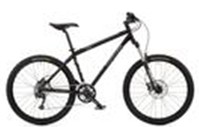
题目列表(包括答案和解析)
| |||||||||||||||||||||||||||||||||||||||||||||
| 根据广告内容,回答问题。 | |
| |
| 1. Is the large flat on the first floor? _________________________________________ 2. Are there two schools near the flat? _________________________________________ 3. How far is Wetton Station from the flat? _________________________________________ 4. How many bedrooms are there in the flat? _________________________________________ 5. How much is the flat? _________________________________________ |
When an animal helps another animal, it usually gets something valuable in return. For a long time, many scientists thought that only people could act generously just because it feels good.
However, a new study in Germany suggests that chimpanzees (黑猩猩)also do good things for no real reason. And so do children who are as young as 18 months of age. Maybe it is because humans and chimpanzees share an ancestor(祖先) about 6 million years ago.
People and chimpanzees appear to develop such features(特征) without any other training, says Warneken, a scientist in Germany. Warneken and his partners worked on adult chimpanzees that live on an island in the African country of Uganda. They also worked with 18-month-old children in Germany. The researchers performed three experiments on the adult chimpanzees and two experiments on the kids. In the first animal experiment,a person tried to reach his arm into a cage to get a stick,but he couldn’t reach it. A chimpanzee was in the cage,and it could reach the stick if it wanted to.
Thirty-six chimpanzees took part in this experiment one by one, and no chimpanzee saw what the other chimpanzees had done. Even though the animals hadn’t met the person before, they usually took the stick and gave it to the person. What’s more, they did this whether or not the person offered them bananas as a reward. In a similar experiment, 36 children acted in a similar way. They helped the person reach the stick, whether or not they were offered toys for their help.
Researchers did other experiments on chimpanzees and babies. No rewards were offered in either experiment. And still, both the chimpanzees and children went out of their way to help. Still, the new study is different from earlier findings. Researchers have found that chimpanzees don’t give rewards of food to other chimpanzees, even if it costs them nothing to be generous.
1.Warneken and his partners worked with ________.
A.young chimpanzee that live on an island
B.18-month-old children who live in Germany
C.kids who are living with adult chimpanzees
D.adult chimpanzees that live on the African mountain
2.A new study in Germany suggests that ________.
A.people also share information for good reason
B.children know something at the age of 18 months
C.chimpanzees do good things for no real reason, too
D.humans should develop their abilities 6 million years ago
3. Which of the following is NOT true according to the passage?
A.Thirty-six chimpanzees joined in this experiment one by one
B.No chimpanzee saw what the other chimpanzees had done
C.The animals hadn’t met the person before the experiments
D.Chimpanzee gave the person the stick in order to get a reward
4.From the passage we know that ________.
A.both chimpanzees and children can find their way to help others
B.chimpanzees will reward good food to other chimpanzees
C.children is more generous than chimpanzees in some ways
D.both chimpanzees and children can do the difficult experiments

Walk to school every day? That will work, but not if you like sleep in. If you like bad smells and crowding(拥挤), the bus might be your best Choice. But why not a bicycle? A bicycle will get you there faster than your feet and will save your money.
This is why you see more bicycles than any other kind of transportation in China, about 500 million of them. That’s close to one for every two people in the whole country. But if you survey your class at school, you may will find a higher rate(比率).
Bicycles became popular because they are fun for people and at the same time help develop a strong body. No vehicle is better than a bicycle for enjoying an autumn weekend outside the city with parents or friends. You can travel on small, quiet paths. You also can park your bicycle beside the path wherever you want to stop to admire the beauty.
Cycling every day helps people build with city healthier hearts and stronger muscles(肌肉). Scientists say a 30-minute ride every day can help you lose weight.
Today, bicycles also are popular with city planners. They see bicycles as a good way to reduce heavy traffic. Unlike buses, bicycles produce no exhaust(尾气) and don’t burn energy. Many countries are encouraging more daily use of bicycles.
【小题1】What’s the main subject of the passage?
| A.Pollution reduction |
| B.Pollution of bicycle |
| C.Transportation of China |
| D.advantages of bicycling |
| A.Bicycling makes people stronger |
| B.Bicycles can travel on narrow paths |
| C.Many bicycles are stolen every year |
| D.Bicycles seldom(很少)get stuck in traffic jams |
| A.Paragraph 1 | B.Paragraph 2 | C.Paragraph 5 | D.Paragraph 6 |
| A.all Chinese students ride bicycles |
| B.if you ride a bicycle for 30 minutes a day, you’ll be thinner |
| C.there are no bicycles that burn energy |
| D.you can’t enjoy beautiful views unless you ride a bicycle |
| A.A train | B.A chair | C.An orange | D.A television |
湖北省互联网违法和不良信息举报平台 | 网上有害信息举报专区 | 电信诈骗举报专区 | 涉历史虚无主义有害信息举报专区 | 涉企侵权举报专区
违法和不良信息举报电话:027-86699610 举报邮箱:58377363@163.com